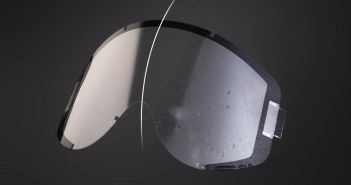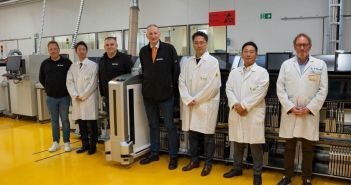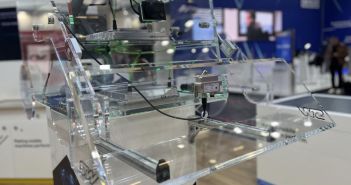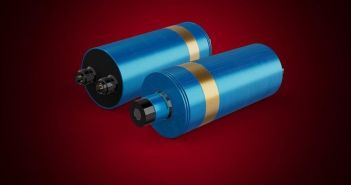Nano One® Materials Corp. is driving a transformation in battery materials for the Internet of Things (IoT), yielding cleaner, more affordable, and environmentally friendly energy sources. Leveraging cutting-edge nanotechnology, conventional materials are optimized, boosting IoT device performance while minimizing environmental impact.
Table of Contents: What awaits you in this article
Successful Project Completion and Promising Outlook
Nano One® Materials Corp. has established itself as a pioneering CleanTech company in the development of active lithium-ion battery cathode material (CAM), contributing to safer, more resilient, and sustainable supply chains. Through patented processes, Nano One has not only reduced costs, complexity, energy intensity, and environmental impact in battery manufacturing, but also garnered support from Sustainable Development Technology Canada (SDTC) and the Innovative Clean Energy (ICE) Fund of the British Columbia government.
Milestone in Advancing Sustainable Technologies
Nano One’s recent announcement highlights the successful completion of its second SDTC project, with a final grant of 803,300 CAD from SDTC and the ICE Fund. Spanning from May 2019 to January 2023, the project titled “Scaling of Advanced Battery Materials” received a total government funding of 8.25 million CAD. This funding enabled Nano One to make significant strides in developing and scaling its One-Pot process for lithium iron phosphate (LFP), showcasing the company’s progress and innovation in the IoT sector.
Efficiency Boosts and Technological Innovations
Through a funded project, Nano One has significantly scaled its One-Pot technology for the production of LFP battery materials. Improvements were made to both the process efficiency and readiness for pilot and industrial production. This method enables the production of LFP materials in larger batches, thereby reducing costs. The company reduced reaction times and improved yields, contributing to increased cost-effectiveness. Additionally, Nano One developed the Metal to Cathode Active Material (M2CAM) technology, which utilizes environmentally friendly metal powders instead of environmentally harmful metal sulfates, leading to further environmental impact reduction.
Strategic Support for a Sustainable Future
Dan Blondal, CEO of Nano One, emphasized the pivotal role of government support from SDTC and the ICE Fund in the company’s development. The funding not only facilitated the execution of business plans but also played a crucial part in attracting strategic partnerships and investors. With the success of this project, Nano One is well-equipped to manufacture clean, environmentally friendly, and competitive battery materials, revolutionizing the battery industry across North America, Europe, and beyond.
Outlook and Progress for the Environment
Thanks to groundbreaking technological advancements and government support, Nano One is driving sustainable development in the battery industry. The company has proven that innovation and environmental protection can go hand in hand, positioning itself as a pioneer in clean energy technologies. With its latest project completion, Nano One is at the forefront of a movement towards more environmentally friendly batteries and a more sustainable future.
Investment in Clean Energy Innovations: Sustainable Development Technology Canada and the Innovative Clean Energy Fund
The Sustainable Development Technology Canada (SDTC) program offers targeted support to companies for developing groundbreaking technologies aimed at addressing environmental challenges. In collaboration with the Innovative Clean Energy (ICE) Fund by the government of British Columbia, companies like Nano One are empowered to drive innovation and contribute to environmental improvement. This partnership enhances the promotion of clean energy technologies, illustrating how collaboration fosters progress for a greener future.














